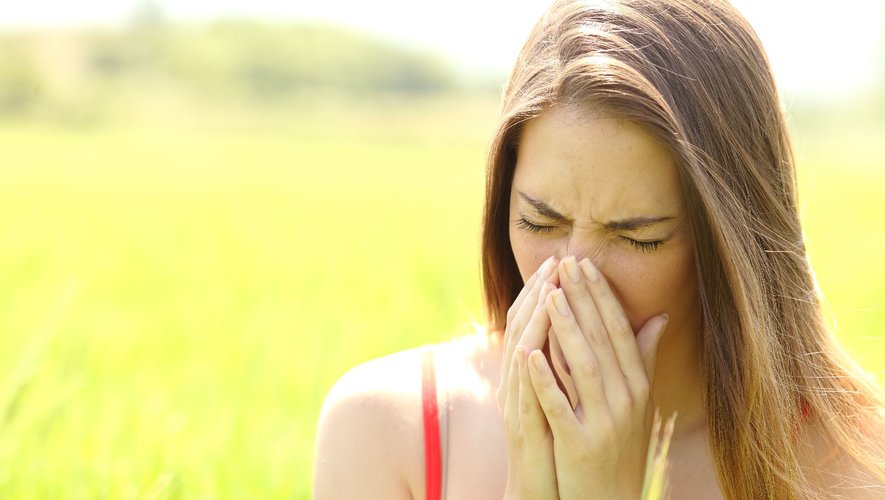Doctors’ offices and pharmacies are overwhelmed with requests for treatments for pollen allergy symptoms. Almost the whole country is indeed classified as a high risk of allergy to grass pollen, which is particularly concentrated in the air during this period. So why not get desensitized?
Allergic rhinitis for the mildest symptoms, exacerbation of respiratory pathologies such as asthma or COPD in the most serious cases. Thanks to favorable weather conditions at the very end of May, grass pollen (wheat, rye, barley, oats, hulca, fescue, etc.) is hitting hard this year, and more or less severely handicapping sensitive people.
And they will be more and more numerous, frequently warns the World Health Organization: it estimates that half of the world’s population will be affected by at least one allergy in 2050, compared to 25% to 30% today. All the possible causes of allergies are on the increase: food, environmental, etc. Deteriorating air quality and rising temperatures favor, for example, the emission of allergenic pollen, more intensely and for longer periods.
Specific immunotherapy
However, it is possible to put an end to these symptoms thanks to desensitization, also called specific immunotherapy. It has long demonstrated its effectiveness against pollen, dust mites, Hymenoptera venom (bees, wasps, hornets, etc.) and certain food allergens. It is proposed by the allergist doctor to the allergic patient after a complete battery of tests, which revealed the source or sources of the allergy.
This desensitization simply consists of “administer, over a long period (several years), extracts of allergens in progressive doses, so as to stimulate the immune system and make the person tolerant to the substance”explains Medicare. “This is performed by subcutaneous injection under medical supervision or by sublingual intake (tablets, editor’s note), depending on the results of the allergological assessment”.
To be effective, desensitization must last between 3 and 5 years (we speak of a desensitization cure), but the first effects are generally felt in the first months. It can be offered to children from the age of 5, and ideally begins, in the case of pollen, three to four months before the appearance of the allergen.
Precautionary principles
In the meantime, and because it can be difficult to get an appointment with an allergist quickly (more and more allergy sufferers and fewer and fewer doctors), you can start by adopting these few measures of prevention:
- Open your windows early in the morning and late at night (it is during the day that the concentration of pollen is the highest);
- If you are traveling by car, drive with the windows closed;
- Rinse your hair before bedtime to avoid depositing pollen accumulated throughout the day on the pillow;
- Do not dry your clothes outside during pollen peaks;
- Check the pollen alert level before leaving your home by consulting the National Aerobiological Monitoring Network website: pollens.fr;
- Finally, antihistamine medications are available without a prescription. They block the effect of histamine, the substance released by the immune system that causes allergic reactions manifesting in symptoms such as itching, itchy eyes, runny nose, hives… Ask your doctor for advice. your pharmacist.

